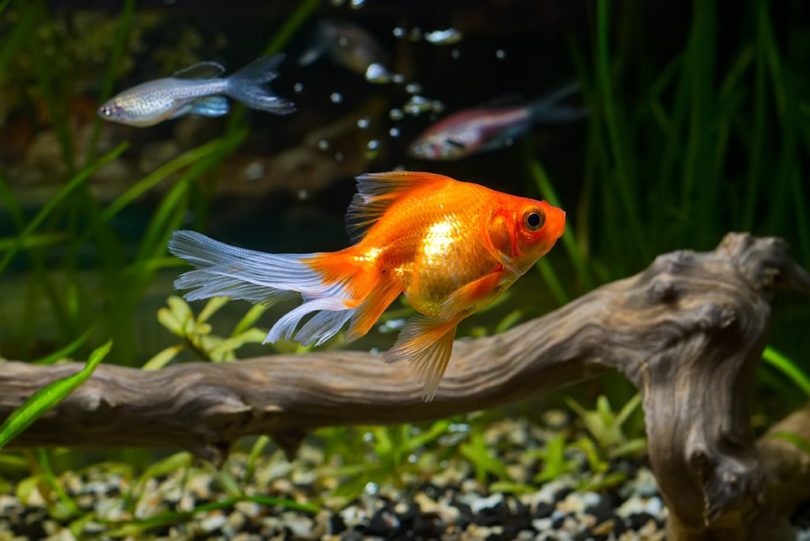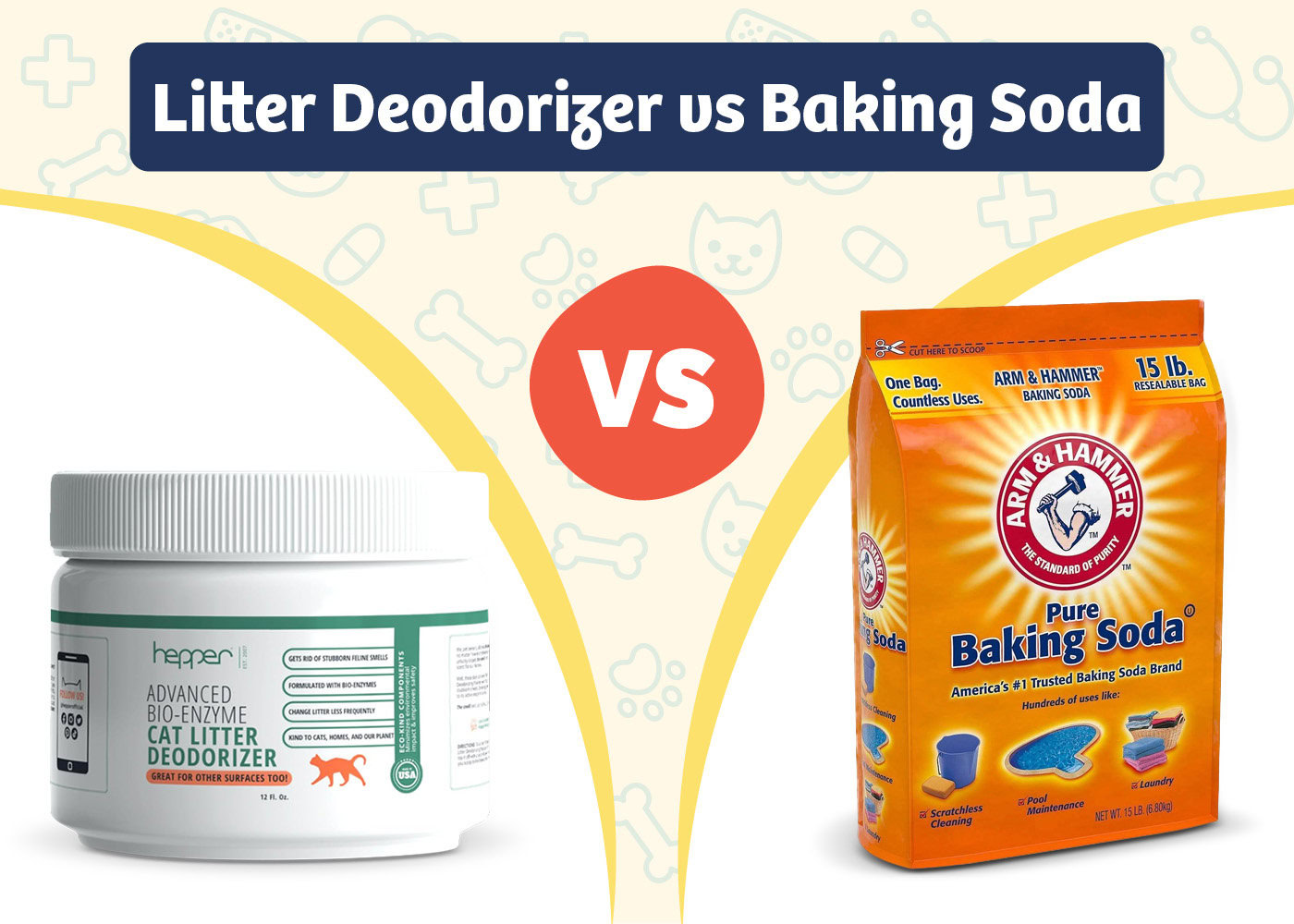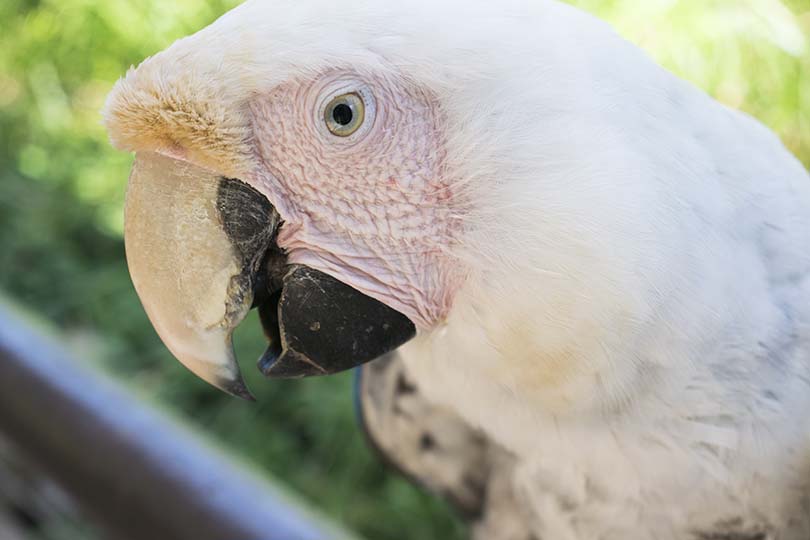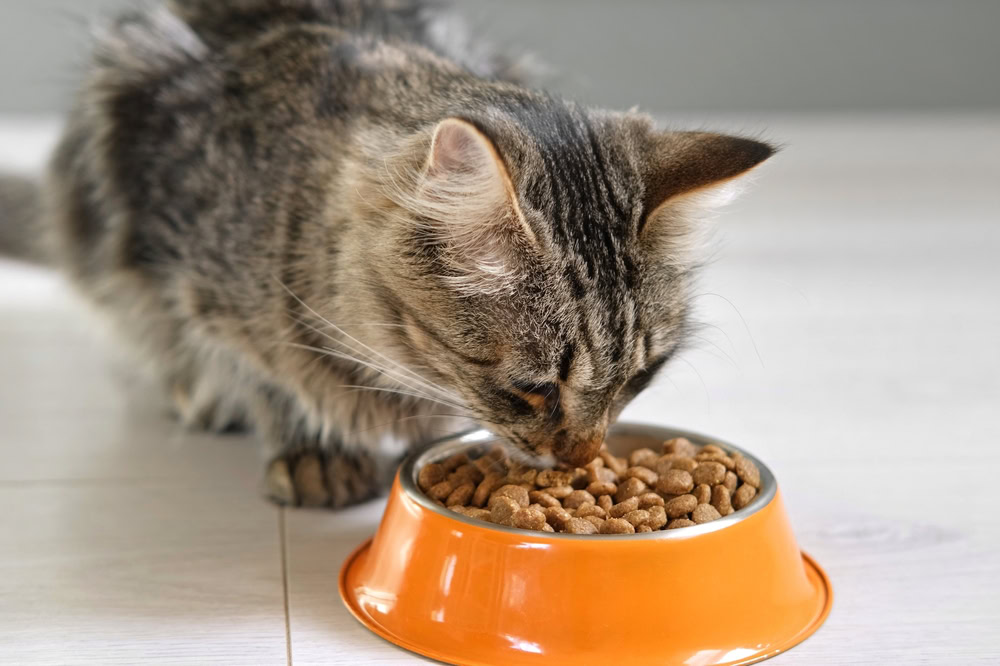VET APPROVED

The information is current and up-to-date in accordance with the latest veterinarian research.
Learn more »Click to Skip Ahead
The battle between people who believe goldfish require large tanks and people who believe they can happily live in small tanks constantly rages on. One of the most common arguments you hear for keeping goldfish in smaller tanks is that goldfish won’t outgrow the size of their enclosure, which many people think sounds ridiculous and like something that is not based on science.
After all, the size of a goldfish’s tank can’t impact their growth to that extent, can it? In this article, we’ll separate the facts from the fiction about whether or not goldfish grow to the size of their tank.

Is It True?
In a strict sense, goldfish do not grow to the size of their tank. There are multiple factors that influence the growth of goldfish, and while the size of the tank is technically not one from a scientific point of view, it is a very important one from a practical sense for most fish keepers.
Water quality, nutrition, stress levels, and health status can also play prominent roles in how large a goldfish grows or how small it remains. To a certain extent, goldfish will grow to the size of their tank, but you have to understand the mechanism of action that causes this effect for there to be any chance of it happening in your tank.
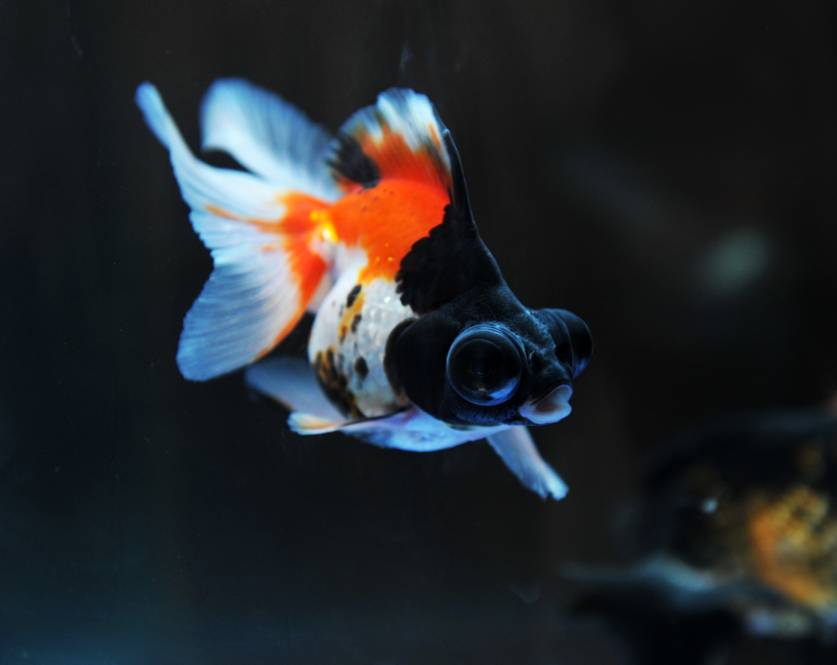
What Causes This to Happen?
Goldfish have two types of secretions that can impact the maximum size in an enclosed environment. One is growth-inhibiting hormones, like somatostatin, and the other is the production of inhibitory neurotransmitters, such as gamma-aminobutyric acid (GABA). Hormones are secreted by goldfish into their environment, which they may then absorb systemically, stunting their growth. Goldfish are one of many freshwater fish that have the ability to do this.
When goldfish excrete the hormones, they begin to build up in the water. In the wild, the fish that are trapped in small ponds are living in a higher concentration of hormones and pheromones than those that are living in rivers or lakes.
Now, apply this knowledge to your aquarium. It’s a small enough environment to allow for the buildup of hormones and pheromones in the water, which, in theory, should mean that your goldfish won’t outgrow the tank, right? Well, not exactly.
To understand how goldfish can outgrow their tank, it’s best to explore another form of fishkeeping.
Closed System Aquarium
Most people house fish in an aquarium, where a fixed volume of water constantly circulates around the fish (via a filter) and is only occasionally partially refreshed via a water change. This is also known as a closed system.
Every time you remove water from the tank, you remove hormones and pheromones with it, and you do not replace them when you add new water to the tank. After a water change, the concentration may have decreased significantly or only slightly, depending on the size of the tank, the number of fish, when the last water change was performed, and the amount of old water removed from the tank.
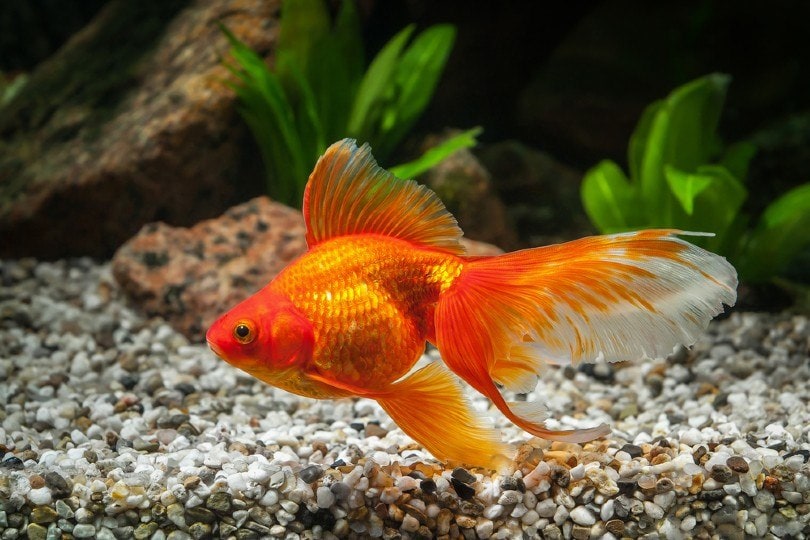
Open System Aquarium
Another relatively expensive but oddly fascinating form of fishkeeping is known as an open system. In this setup, fish are housed in an aquarium and are maintained by ensuring that there’s a constant flow of new water from a safe source being added to the aquarium at all times. Concurrently, a constant flow of water is being removed from the aquarium at the same rate. The result is an aquarium that always holds the same volume of water, but never the same water, as it keeps refreshing itself from a safe source.
This setup is considerably expensive since you need a constant supply of water. However, it is also fascinating as there’s no buildup of toxins in the water with this system. Such an aquarium doesn’t have to be cycled prior to adding fish to it. An open system essentially tries to replicate a fish in a stream.
The hormones that a fish produces are instantly removed from the water. Researchers have found that fish kept this way can outgrow their environment. When housed in open system tubes, fish raised experimentally kept growing until they couldn’t move or turn in the tube. However, the tube itself didn’t restrict their growth. Therefore, to think fish will only grow to the size of their tank is technically incorrect.
However, given that most fish are housed in closed systems, the tank’s size plays a very important role in determining the fish’s size.
Will Allowing Hormones and Pheromones to Build Up Harm My Goldfish?
Allowing the hormones to build up in the tank won’t directly harm your fish. However, what can and will harm your goldfish is poor water quality. Infrequent water changes allow for the buildup of waste products, especially nitrates, and the build-up of solid waste like poop and uneaten food. The more the waste builds up in your tank, the worse your water quality becomes, and the more likely your goldfish will experience adverse health effects.
It is hypothetically possible to find a balance between fewer water changes to allow for hormones to become concentrated in the tank and frequent water changes to maintain good water quality, but there is not an exact science to tell you how to do it. This is because no test exists to measure these hormones.
Your top priority should be maintaining water quality, so always make your tank cleaning and maintenance plans with this goal in mind.
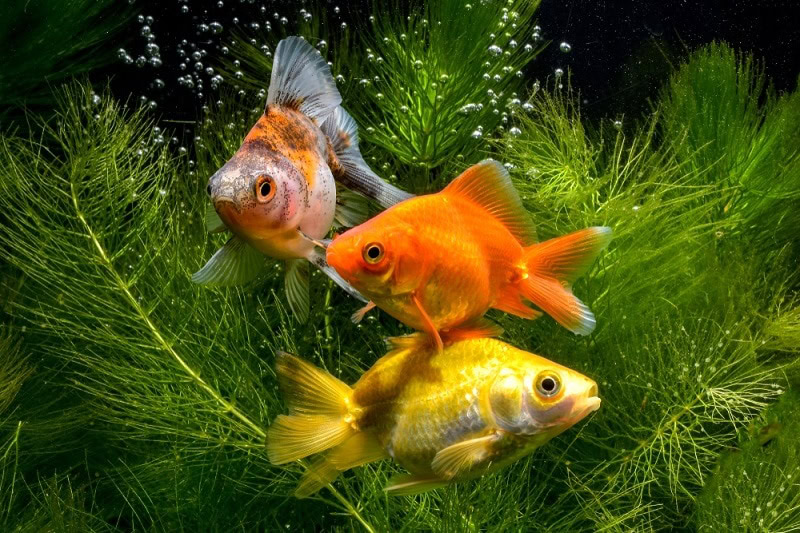
Will Stunting Growth Harm My Goldfish?
Currently, no scientific evidence indicates that allowing your goldfish’s growth to be stunted is harmful to them. Some goldfish are naturally small and will stay small, even if you have them in a 200-gallon pond, while others may continue to grow, even in a small tank. Either way, the fish will grow and develop properly, barring underlying health conditions.
Some people are concerned that allowing growth to become stunted may cause the external body to stop growing as the internal structure continues to grow, leading to organ enlargement and failure. Scientists have not conclusively proved or disproved this theory as of yet.
However, from a humane point of view, there is no justifiable explanation for allowing your pet goldfish to be stunted. As explained previously, goldfish can outgrow small tanks, and therefore, if you observe your goldfish stunted in a small aquarium, it means that they were unfortunately exposed to stressors that caused the stunting in the first place.
Alternatively, it could also indicate that the nutritional value of the food offered to your goldfish wasn’t adequate for them. Either explanation has no reasonable justification.

Final Thoughts
Goldfish are far more interesting fish than they are often credited for, and their ability to induce stunted growth in enclosed environments is fascinating. Allowing your goldfish’s growth to become stunted isn’t cruel or proven to be dangerous, as far as science has shown.
However, science hasn’t justified any reason for allowing this to happen in pet goldfish either, as it offers no benefits. In addition, a stunted pet goldfish is usually the result of poor housing conditions or nutritional deficiencies; therefore, there is no logical reason for your goldfish to become stunted.
Featured Image Credit: Skumer, Shutterstock
